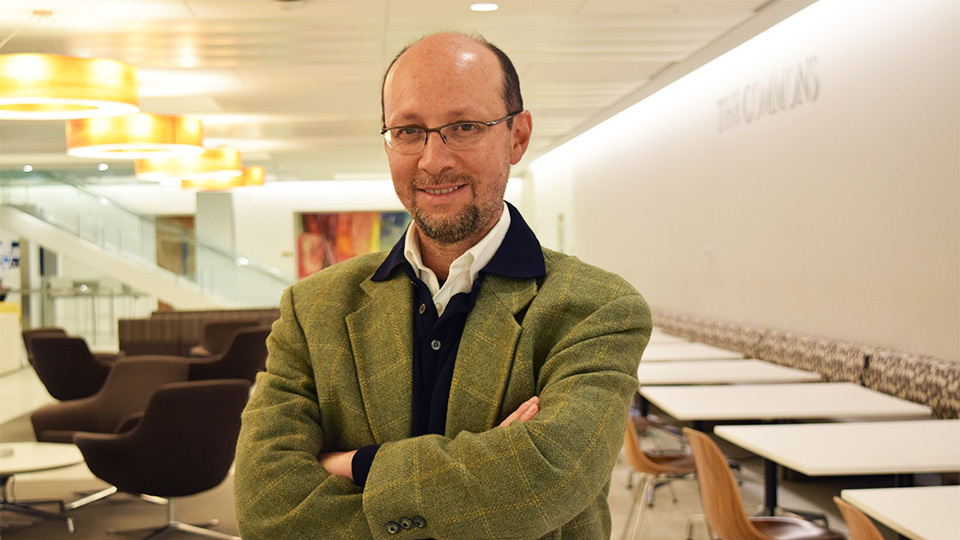AUWCL UN Expert Champions Human Rights and Environmental Advocacy
A conversation with Professor Marcos Orellana about human rights and the environment

Marcos Orellana's profound dedication to human rights and the environment stems from his pivotal experiences in Chile during the country's transition to democracy.
"I was very involved in human rights work dealing with the legacy of human rights violations by the military dictatorship," Orellana said. "I then also realized that the transition towards democracy presented important challenges for the protection of the environment and indigenous peoples' rights."
Orellana currently serves as the United Nations special rapporteur on Toxics and Human Rights, as well as the director of the Global Toxics and Human Rights Project at American University Washington College of Law. He is also an adjunct professor at AUWCL. Initially appointed by the Human Rights Council in 2020 for a three-year term, his appointment was renewed in 2023, solidifying his commitment to effecting change.
In his role as UN special rapporteur, Orellana engages with a diverse array of stakeholders, from states and civil society to businesses, identifying instances of human rights violations and abuse linked to toxins and waste. His influence extends even further as he collaborates with news organizations, conducting interviews with journalists across the globe.
His significant contributions recently garnered attention in a New York Times article, highlighting his expertise as one of the key authorities on a panel investigating the Chemours chemical plant's contamination of the Cape Fear River in Fayetteville, North Carolina. The panel unequivocally labeled this pollution a human rights issue.
"PFAS, also known as forever chemicals, are a class of synthetic chemicals that are very hard to destroy," Orellana said.
According to Orellana, these hazardous chemicals pose significant threats to both human health and the environment and can be linked to various forms of cancer.
His work with the UN ties in to work at WCL in several ways.
"My work as UN special rapporteur calls for handling vast amounts of information. That is an opportunity to work with students and mentor them and also to benefit from the support they can provide," he said. "Student teams can do exceptionally good work in research and distilling information. They often have creative ideas on ways to approach issues."
This drive led him to establish the groundbreaking Global Toxics and Human Rights Project at the Center for Human Rights and Humanitarian Law and the Program on Environmental and Energy Law at AUWCL. Orellana also regularly collaborates with students in WCL’s Human Rights Clinic.
"I have had the good fortune of working with very good students with the Human Rights Clinic in seeking remedies for people who have suffered harm as a result of exposure to toxic substances and wastes," Orellana said.
Orellana received his BA and JD (equivalent) from the Catholic University of Chile. He also received an LL.M. in International Legal Studies and an SJD from AUWCL. This summer he’ll be teaching on the Law on Human Rights and the Environment at the program of advanced studies of WCL’s Academy on Human Rights and Humanitarian Law.
Story by Liz Newton.